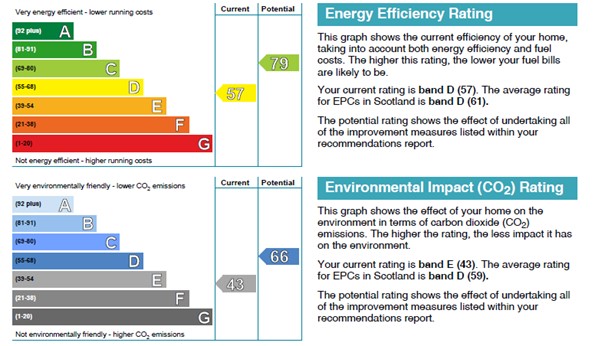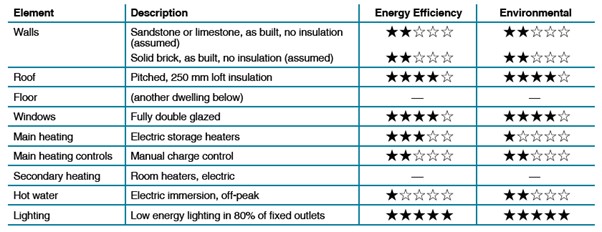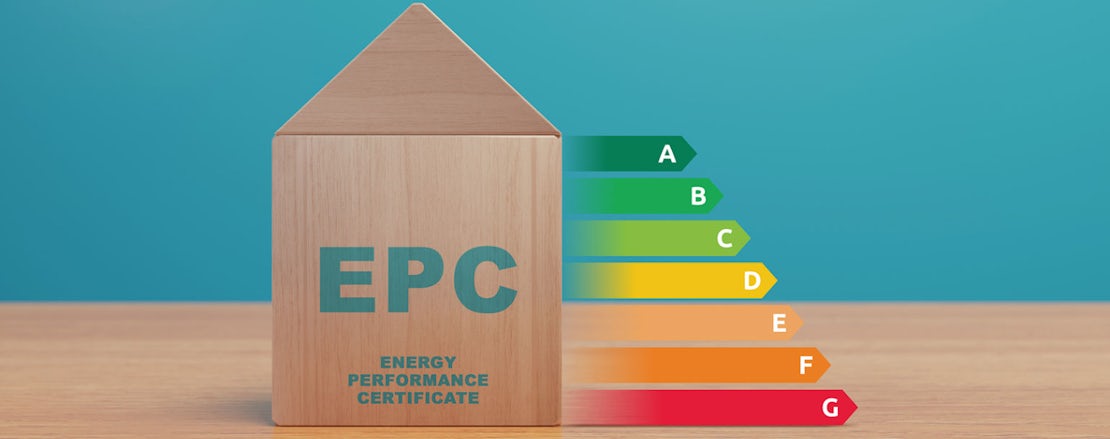Improving EPC ratings in private rental properties might not be at the top of every landlord’s ‘to do’ list, but it’s now an important factor in today’s rental market.
High energy costs and reduced energy usage have been at the forefront of everyone’s minds over the winter months. In addition to the current cost-of-living crisis, the government is putting a bigger emphasis on energy ratings of properties, meaning that landlords need to ensure they are acquainted with their Energy Performance Certificate (EPC). Obtaining a valid Energy Performance Certificate is a legal requirement before advertising a property for rent in Scotland and tenants are now much more aware of EPC ratings when selecting properties.
Here we explore the need to improve EPC ratings and how At Home In Edinburgh is addressing the challenge.
Changes in legislation to drive improved energy efficiencies
We previously announced that the Scottish Government proposed new legislation to introduce minimum EPC standards for the Private Rental Sector (PRS) – you can find this earlier article here.
The new proposals require all PRS properties to achieve a minimum EPC standard of C by change of tenancy in 2025. All remaining PRS properties will then be required to meet EPC C as a minimum standard by 2028.
However, exemptions will be allowed where it can be demonstrated that reaching EPC C is not cost-effective or technically feasible. We are still waiting for details on these exemptions.
Tenants’ increased focus on EPC ratings
The impact of the cost of living crisis, particularly on fuel bills, means tenants are putting much greater emphasis on the EPC ratings of the properties they target. During viewings, many tenants are asking us what improvements landlords have planned.
We have also experienced tenants in existing tenancies contacting us to understand what action plans are in place for their properties and expressing concerns about particular areas of efficiency in their property.
By not investing in energy improvements, landlords will find their properties less desirable, resulting in a lower market rent and shorter tenancies.
EPC importance when buying and selling properties
Home buyers and investors are equally aware of the EPC ratings of properties for sale and the level of investment that might be required to improve the EPC rating.
Analysis by Paragon shows the average cost to upgrade a property to EPC C is £10,560. However, a study of 200,000 homes listed on Rightmove that had sold twice, with an improved EPC rating the second time, found moving from an E to a C gained sellers an extra 8% on average, and moving from a D to a C resulted in an average of 4% extra.
Some buy-to-let mortgage providers are already restricting lending to properties with low EPC ratings. The Government’s new plans could also mean mortgage lenders must have an average EPC rating of C across all the properties on their lending book by 2030. Mortgage lenders will therefore already be thinking about implementing this.
How to read your EPC
Understanding the need for improving EPC ratings is one thing; understanding your EPC document is another! The EPC document can be daunting to those who are not familiar with the information presented. However, with a little understanding it can provide guidance on the steps that can be taken to improve the EPC rating, along with estimated costs.
Below we set out a summary of some sections of the EPC document. If you would like further advice on any aspect of the EPC, please get in touch..
An EPC certificate is designed to show how energy-efficient a property is, on a scale of A (very efficient) to G (inefficient). This is set out on page one.

On page 2 is a table which lists the current energy-related features of your home, including the style of windows, heating source etc. It is important to review this table to ensure it accurately reflects your property and any improvements that may have taken place e.g., installation of double glazing.

On page three you will find the recommended improvement measures for your property, along with estimated costs, and the impact these measure will have on the rating.

We’re here to help, so if you would like any support in understanding the EPC for your property, please contact your property manager.
What is At Home In Edinburgh doing?
We have been working with our landlords on improving EPC ratings since the Scottish Government announced the new proposed legislation, in 2021.
We began by analysing and documenting our property management portfolio’s current EPC ratings, determining that around 45% of properties are below the 2025 minimum C requirement. This presented a significant volume of work, so we implemented a plan of action for each property, including new properties as they are added to our management portfolio.
Our on-going plan of action includes:
- Continuing to analyse and documenti our property portfolio’s current EPC ratings
- Reviewing EPCs to ensure they accurately reflect the property in its current condition
- Setting action plans for each property
- Setting up partnerships with specialist companies e.g. insulation installation providers
- Addressing any ‘easy wins’ at tenancy changes e.g. installing loft insulation
- Arranging estimates for more invasive work to allow our landlords to budget for future upgrades
We’re here to help
If you would like to discuss the EPC rating of your property and the potential improvements that can be made, please contact your property manager.
Our team are here to support you and to answer any concerns or queries you may have, so please do get in touch. Give us a call on 0131 229 4001, email via our contact form or pop in and see us at 39 Warrender Park Road, Edinburgh, EH9 1EU.
